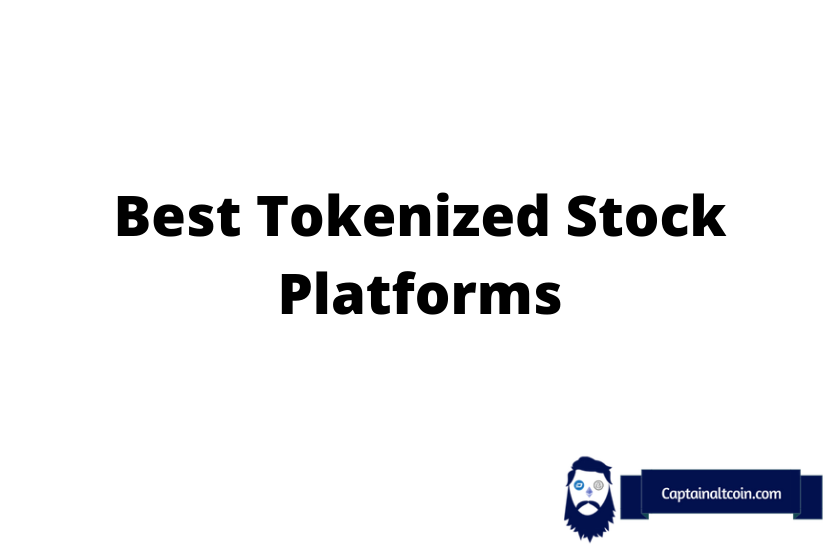
Tokenization is the process of digitizing any physical or existing digital asset using Distributed Ledger Technology (DLT) and holding or issuing the token as proof of ownership of the asset. Currently the DLT being used to tokenize assets is the Blockchain technology.
Tokenization is the bridge linking the traditional finance industry and the digital currency space. It is the complaint integration of the traditional financial security market with the benefits of DLT.
With tokenization, a resident of any country can trade stock in any company listed on any stock exchange like NYSE and NASDAQ without going through a registered stock brokerage. How? By buying the tokenized version of the company’s equity share on crypto exchange platforms like Binance exchange. This is possible with companies that have tokenized digital versions of the equity stocks.
Tokenized stocks are the latest digital assets that have opened up the world of cryptocurrency to people who recently were unable to access it due to financial or geographical restrictions. According to many crypto evangelists, tokenized stocks offer a better alternative to the traditional and largely outdated investment market.
What you'll learn 👉
Advantages of Tokenized Stocks
Few advantages of tokenized assets include;
· Traders can trade a piece of a stock instead of buying the entire stock. Depending on where you are located, it is much easier and cheaper to buy and sell tokenized stock compared to real stocks.
· Traders can buy and sell tokenized tokens 24/7
· You can invest in the S&P 500 with the SPY ETF if you don’t want to trade individual stocks.
How Do Tokenized Stocks Work?
The process of tokenization is not different from listing stocks on the traditional stock exchange. The shares are listed either directly by the issuing company or through an IPO.
Tokenization of stock embraces some elements of centralization as an investment firm or a custodian is involved. In this case, the investment firm buys stocks from the issuing company and keeps as reserve with a custodian.
The shares kept in the reserve are then used as collateral for issuing tokens on the blockchain and listed on the crypto exchanges.
The tokens can be purchased from any listing exchanges. In addition, the investment company can choose to store the tokens as proof of ownership of stock in the equity company. Decentralized platforms may have slightly different tokenization methods.
Since investors are basically indirect customers of the Investment Institutions, they need to satisfy strict KYC requirements put in place by the investment institution and the crypto exchange.
Top Benefits Of Tokenized Stocks
· Tokenized stocks improve access to liquidity among the wider population that can access listed stocks on leading stock exchanges. This also benefits those stocks that have low liquidity
· Less transaction time as token transfer takes a relatively less time than the transfer of an equity share.
· The transactions are cost-efficient
· Tokenized stocks allow partial ownership of stock. This makes it possible small-scale traders to own stocks in multinational companies whose stocks are usually very expensive.
· Token holders cab trades the tokens freely on some platforms like Binance which offer free token stock trading
· Token holders earn dividends declared on the share. This may however be subject to terms and conditions of each crypto exchange.
· Unlike stock markets that have trading hours, the crypto market is accessible 24/7 hence tokenized stocks can be traded any tome. This offer is limited as many crypto exchanges maintain trading time for tokenized in synch with trading time for corresponding stocks on stock markets to maintain prices. This is because many tokenized stocks are priced at the same level as their corresponding shares on the stock market.
Below are top exchanges for tokenized stocks;
FTX Exchange
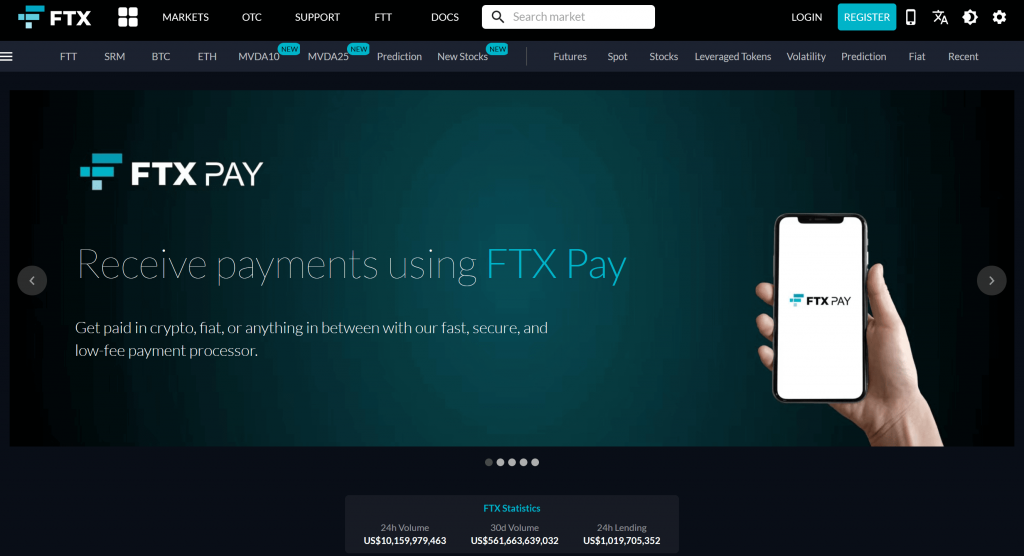
FTX Exchange has emerged as one of the fastest-growing and innovative crypto exchanges attracting market attention due to its unique features. Among the key innovative features launched include tokenized stocks.
CM Equity is a Germany-based Investment Institution associated with FTX Exchange, which custody of equity stocks with a third-party brokerage firm. CM Equity conducts a thorough KYC evaluation on new investors before allowing them to invest in tokenized stocks.
FTX Exchange has a wide range of listed tokenized assets among them;
· Tesla
· Apple
· Netflix
· Paypal
· Amazon
Distinct features of tokens listed on FTX Exchange include;
· Token holders qualify to earn dividends declared on the corresponding equity stock
· Token holders do not attend the AGM
· Token holders do not have any voting rights in the equity issuing company
· Residents in restricted jurisdictions cannot trade tokenized stocks
· Traders pay a fee on all trades in tokenized stocks
· Tokenized stocks can be traded anytime 24/7
· Token holders can lend out their tokenized stocks and earn additional rewards
Visit FTX Now
FTT Token – Native Token of FTX Exchange
The FTX has a native token called the FTT which has a market cap of $6.4 billion. The token is the backbone of the FTX ecosystem and mainly used to pay transaction fees and can be staked to earn additional income. The FTT tokens can be purchased on the FTX exchange or Binance exchange
Binance Exchange
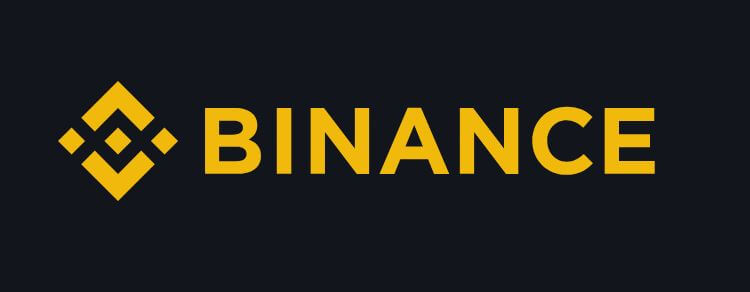
Binance is the leading global cryptocurrency exchange platform offering a variety of investment products to trade and available to users in many countries around the world. To further diversify its investment product offering, the exchange recently started offering stoke tokens for trade.
Binance offers trading in tokenized stocks through CM Equity, an investment company that has a similar arrangement with FTX Exchange Below are main features of Stoke Tokens listed on Binance;
· No fees is charged to trade stoke tokens on Binance
· Holders earn dividends declared by the equity stock issuer
· Token holders do not attend the AGM
· Token holders do not have voting rights
· The platform is not available to users in the U.S, Mainland China, and Turkey
Currently tokenized stocks listed on Binance include;
· Coinbase
· Tesla
BNB Token
Binance is backed by an ERC 20 native token called BNB. The token has a market cap of $79.3 billion and its total supply capped at 170.5 million BNB tokens. Currently 154 million BNB tokens have already been released into circulation. The token is mainly used for various fees charged on the platform. In addition, token holders can stake them to earn regular rewards. Advantages of BNB tokens include;
· Access to reduced transaction fees
· Holders can participate in yield farming to earn more returns
· Proof of stake
· They accord the holder a VIP status and some degree of exclusiveness
Investors can trade BNB tokens on crypto exchanges like Binance, WazirX, and FTX.
Bittrex Global Exchange
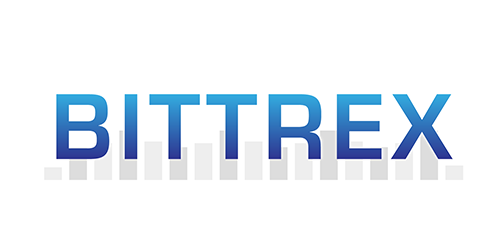
Bittrex is a U.S based cryptocurrency exchange that has been in operation since 2014. The exchange is regulated under the U.S regulations. Bittrex has partnered with Swiss-based DigitalAssets.AG to issue tokenized stocks. DigitalAssets is an asset digitization platform.
Key features of tokenized stocks on Bittrex Global Exchange;
· Token holders earn dividends declared by the equity issuer.
· Holders do not attend the equity firm’s AGM meeting
· Token do not have voting rights at the equity firm.
· There are fees charged for trading tokenized stocks on the exchange
· Holders can trade on the platform 24/7
· The platform is not available to users in the United Kingdom, the European Economic Area, the European Union, and Switzerland. The exchange is currently engaged in talks with Germany-based investment institution, CM Equity to facilitate listing of tokenized stocks in these regions.
Tokenized stocks listed on Bittrex Global Exchange include;
· Tesla
· Coinbase
· Apple
· Amazon
· Square
Mirror Protocol
Mirror Protocol is a DeFi platform that offers fully synthetic tokens called “mAssets”, whose value is pegged to that of a real-world physical asset. The physical asset can be a piece of land, electronics, or even stocks in a company.
Instead of a reserve of actual company stocks, Mirror Protocol maintains a Collateralized Debt Position (CDP) where anyone who mints mAsset pays collateral. Minters must have a minimum CPD ratio of 150% below which the collateral will be liquidated and proceeds paid to mAsset holders.
A minimum CDP ratio of 150% must be maintained at all times below which the collateral will be liquidated and proceeds will be paid to the mAsset holders.
Mirror Protocol was launched by Terraform Labs and is hosted on the Terra Network, a smart contract-based platform.
Key features of an mAsset include;
· Traders are not subjected KYC procedures
· Token holders do not earn dividends from the listing equity firm
· mAsset token holders do not attend the equity company’s AGM
· Token holders do not have voting rights in the equity company
· Mirror Protocol is a fully decentralized platform
· ‘There is a 0.3% trading fee paid by mAsset taken holders.
· The tokens can be traded on various platforms like Binance Smart Chain network (Pancakeswap) and Ethereum (Uniswap).
Tokenized stocks listed on Mirror Protocol include;
· Tesla
· Apple
· Netflix
· Amazon
· Alibaba
MIR Token Utility
The Mirror Protocol has a native Terraswap CW20 Token called MIR used for governance and decision-making on the platform. MIT token holders have voting power which they can use to decide on major decisions on the platform. Currently the exchange allows only token holders with staked coins to exercise these voting rights. In addition to transaction purposes, the MIR tokens can be staked to earn additional rewards.
The maximum supply of MIR tokens is 370.5 million and the tokens are expected to be distributed within a span of four years. The token has a market cap of $552 million with 15% or 56.8 million tokens currently under circulation.
Synthetix Exchange
Synthetix is an Ethereum exchange that lists synthetic tokenized assets dubbed “Synths”. The exchange is currently partially decentralized and is working on becoming fully decentralized. The token is pegged to the value of a real-world asset but the asset is not backed by any reserve of any real company stock.
Synthetix has a similar structure to that of Mirror Protocol with the main difference being the Collateralized Debt Position (CDP) in Mirror Protocol whose equivalent in Synthetix is the concept of “Infinite Liquidity”.
There are two types of synths on Synthetix;
· Long synths whose price increases with that of the underlying assets. The long assets are denoted with the prefix “S” like SBTC and SETH.
· Short synchs whose price drops when the price of the underlying asset increases. These tokens are denoted with the prefix “I” like iBTC and iETH.
Currently the platform has listed only Tesla’s tokenized stocks.
Features of a Synth are as follows:
· Users to do not undergo KYC verification to trade Synths
· Token holders do not earn dividends on the equity stock
· Token holders do not attend the equity firm’s AGM
· The tokens do not offer any voting power to the holder
· Traders pay a fee of 0.3% of the transaction volume
· Users can trade Synchs 24/7
SNX Token
Synthetix Exchange is backed by the native token SNX which is the primary collateral which back the synthetic assets. Synch holders can stake their tokens to earn additional returns. The maximum supply of SNX tokens has been pegged at 215 million and 54%or 114.8 million tokens have already been released into circulation. The SNX token has a market cap of $1.8 billion.
SNX tokens can be bought on platforms like;
· Binance
· Kraken
· MXC.com
Bitpanda Exchange
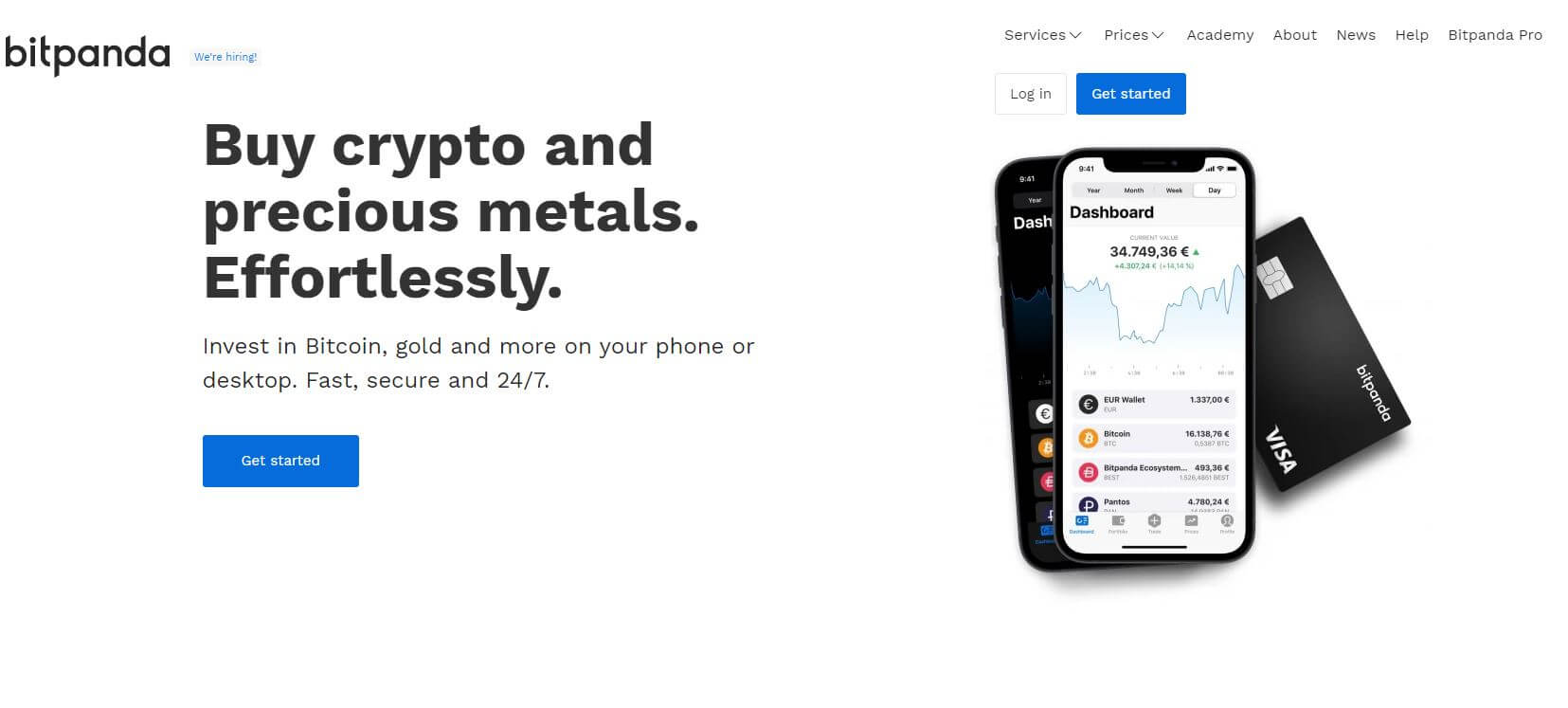
Bitpanda is a cryptocurrency exchange that also offers tokenized stocks called “Bitpanda Stocks”. The crypto exchange offers digitized stocks through its subsidiary called Bitpanda Financial Services, which holds actual stocks in the equity firm. It therefore has some degree of centralization similar to peers like Binance Exchange and FTX Exchange.
Bitpanda Stock features include;
· The platform does not charge any fees to trade tokenized stocks
· Traders can trade digital stock 24/4
· Bitpanda Stocks holders are entitled to a dividend in the equity stock
· Token holders can participate in the equity’s AGM
· Token holders do not have any voting rights in the equity firm
Token stocks listed on Bitpanda Exchange include;
· Tesla
· Apple
· Netflix
· BMW
· Amazon
· Alibaba
· AirBnB
Read also:
- Altrady Review – How To Use This Crypto Trading Platform?
- Coinigy Review – Fees, Alerts & Order Types
- Coinigy vs Altrady – Which Trading Platform Is Better?
- Best Crypto Trading Tools: Crypto Resources for Analysis
- Best Crypto Charting Software & Tools For Bitcoin & Altcoin Traders
- Gocharting Review – How To Use This Trading Charting Platform?
- Breakfree Trading Navigator Review – Is It Legit & Safe To Use?
- CryptoView Review [2022] – How Good Is This Trading Platform
Conclusion
The DeFi industry is still nascent with a lot of room for expansion. There has been explosive growth especially in the emergency of cryptocurrency exchanges. These exchanges have been the driving force in the crypto industry thanks to several investment products that each platform has introduced. With the industry still picking steam, tokenized stocks are expected to attract more attention as they create a bridge between the crypto space and the traditional financial industry.





